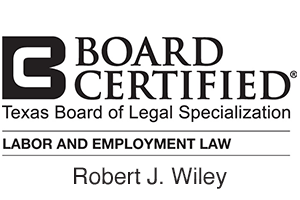in Austin, Texas
Overtime Pay
You Are Entitled to Overtime Pay
If you work more than 40 hours per week, you might be entitled to overtime pay for each hour worked over the standard 40. For example, if you make 10 dollars an hour and work 45 hours in a week, for those extra 5 hours per week you should be paid 15 dollars per hour. This standard has been law since 1938, when the Fair Labor Standards Act was passed under President Roosevelt. Notably, there are some exemptions to the FLSA. If your employer pays you a standard yearly salary instead of compensating you by the hour, you might be “exempt” from the FLSA. However, there are limits on what positions may be exempted.
Some Common FLSA Violations
The most common violation of the Fair Labor Standards Act is simply not paying employees the overtime rate when they work more than 40 hours in a week. If you are paid hourly and notice that you are not receiving additional compensation when you work overtime, then your employer has violated the FLSA and is liable to you for the additional pay. They may also have to pay you liquidated damages, which will double your award. It is also not uncommon for employers to misclassify employees as executives or otherwise claim that they are somehow exempt from the FLSA. Positions that are commonly misclassified include salespeople and call center employees, drivers, blue-collar laborers, and computer and IT employees. The exemptions that allow employees to be salaried are designed to be narrowly interpreted, and carry many technical requirements. If you have doubt about whether you are really doing the type of work that exempts you from receiving overtime pay, you should contact one of the Austin employment lawyers at Austin Employment Lawyers, P.C. to help determine if you have been misclassified.
Employers often also violate rules around pay by forcing employers to work while off the clock. You cannot be told to do work before clocking in or after clocking out on any given day. In some cases, this is because the employer automatically records employees’ time instead of allowing them to clock in and clock out; in some cases, the violation is intentional. In either situation, if you are being asked to do work before you clock in for the day or after you clock out, you should be aware that this is illegal and that your employer may owe you compensation.
Employers also often incorrectly take certain deductions out of their workers’ paychecks. Most commonly, they will either require employees to clock out for their lunch hour or take a lunch deduction out of their paycheck when in reality those employees are expected to be working during that time. If you are not compensated for your lunch hour, you should not have to eat at your desk or field any work requests—you should be totally off duty. If your employer has incorrectly deducted money from your paycheck, they are liable to you for the money they should have paid you. For example, if you have 5 hours improperly deducted from your paycheck in one week, your employer now owes you 5 hours of pay. With liquidated damages taken into account, you may be awarded as much as 10 hours’ worth of pay by the courts.
When and How to Take Action
The Fair Labor Standards Act allows employees to pursue compensation for incorrect pay that they received during the past two years. If the violation is willful, the compensation calculated is instead for the past three years. However, it is best to take action as soon as possible if you notice that you are not receiving pay that you should be receiving. You should contact one of Austin Employment Lawyers, P.C.’s Austin employment lawyers, who have experience in filing claims on behalf of employees seeking unpaid overtime or unpaid wages. If you are not being paid overtime, have had income unfairly taken out of your paycheck, or you otherwise have a claim, you can contact us by filling out our intake form or calling our office at (512) 271-5527.







